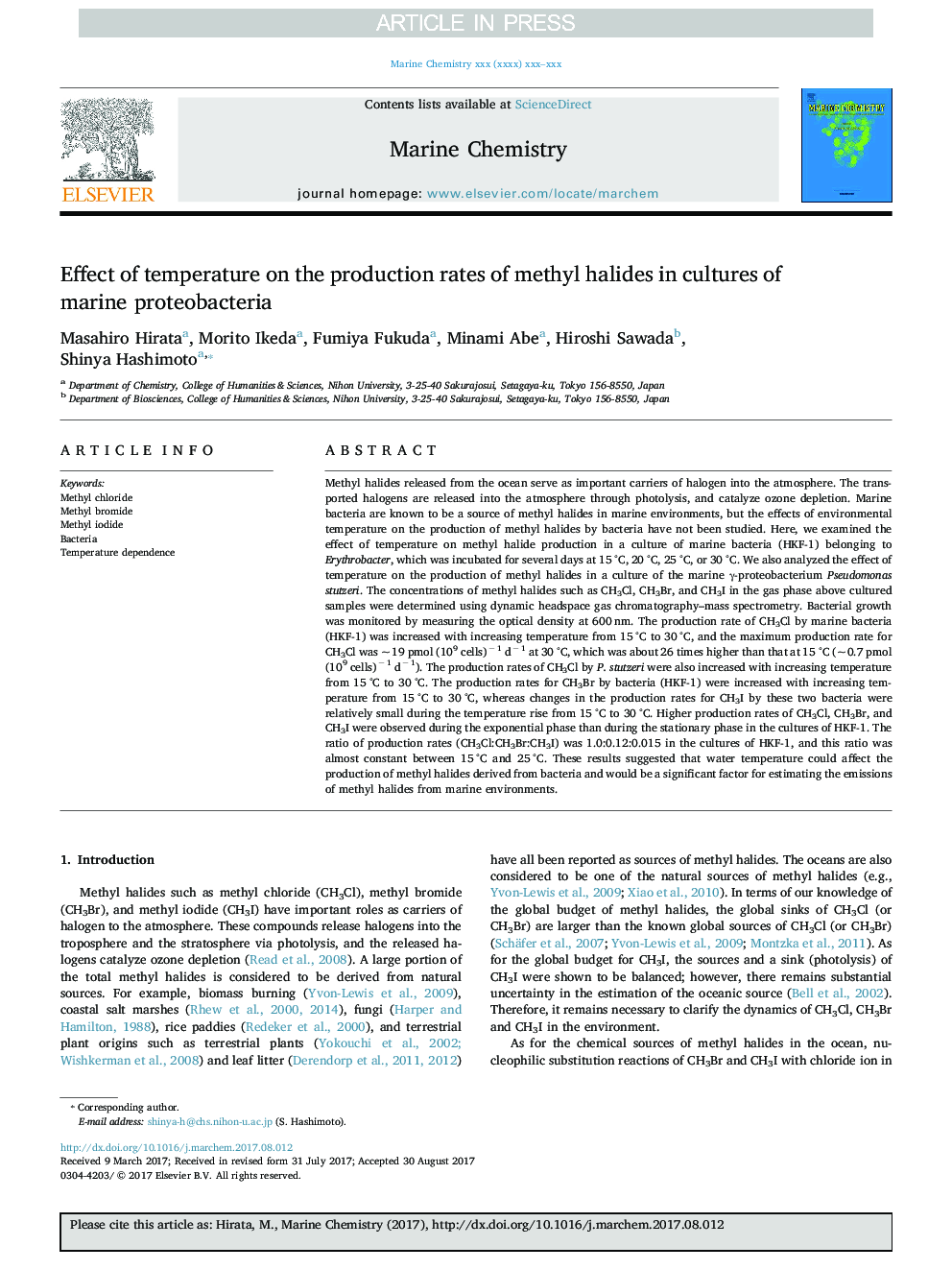| Article ID | Journal | Published Year | Pages | File Type |
|---|---|---|---|---|
| 7699020 | Marine Chemistry | 2017 | 9 Pages |
Abstract
Methyl halides released from the ocean serve as important carriers of halogen into the atmosphere. The transported halogens are released into the atmosphere through photolysis, and catalyze ozone depletion. Marine bacteria are known to be a source of methyl halides in marine environments, but the effects of environmental temperature on the production of methyl halides by bacteria have not been studied. Here, we examined the effect of temperature on methyl halide production in a culture of marine bacteria (HKF-1) belonging to Erythrobacter, which was incubated for several days at 15 °C, 20 °C, 25 °C, or 30 °C. We also analyzed the effect of temperature on the production of methyl halides in a culture of the marine γ-proteobacterium Pseudomonas stutzeri. The concentrations of methyl halides such as CH3Cl, CH3Br, and CH3I in the gas phase above cultured samples were determined using dynamic headspace gas chromatography-mass spectrometry. Bacterial growth was monitored by measuring the optical density at 600 nm. The production rate of CH3Cl by marine bacteria (HKF-1) was increased with increasing temperature from 15 °C to 30 °C, and the maximum production rate for CH3Cl was ~ 19 pmol (109 cells)â 1 dâ 1 at 30 °C, which was about 26 times higher than that at 15 °C (~ 0.7 pmol (109 cells)â 1 dâ 1). The production rates of CH3Cl by P. stutzeri were also increased with increasing temperature from 15 °C to 30 °C. The production rates for CH3Br by bacteria (HKF-1) were increased with increasing temperature from 15 °C to 30 °C, whereas changes in the production rates for CH3I by these two bacteria were relatively small during the temperature rise from 15 °C to 30 °C. Higher production rates of CH3Cl, CH3Br, and CH3I were observed during the exponential phase than during the stationary phase in the cultures of HKF-1. The ratio of production rates (CH3Cl:CH3Br:CH3I) was 1.0:0.12:0.015 in the cultures of HKF-1, and this ratio was almost constant between 15 °C and 25 °C. These results suggested that water temperature could affect the production of methyl halides derived from bacteria and would be a significant factor for estimating the emissions of methyl halides from marine environments.
Related Topics
Physical Sciences and Engineering
Chemistry
Chemistry (General)
Authors
Masahiro Hirata, Morito Ikeda, Fumiya Fukuda, Minami Abe, Hiroshi Sawada, Shinya Hashimoto,
